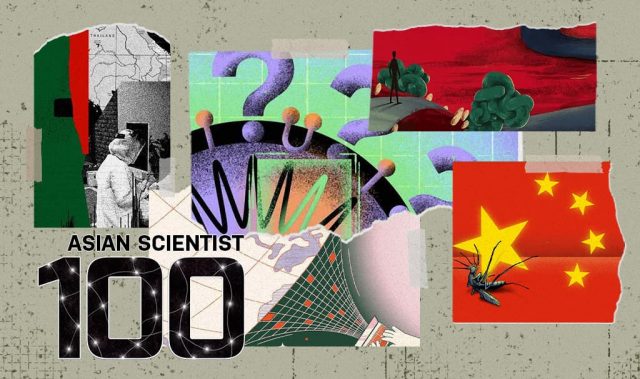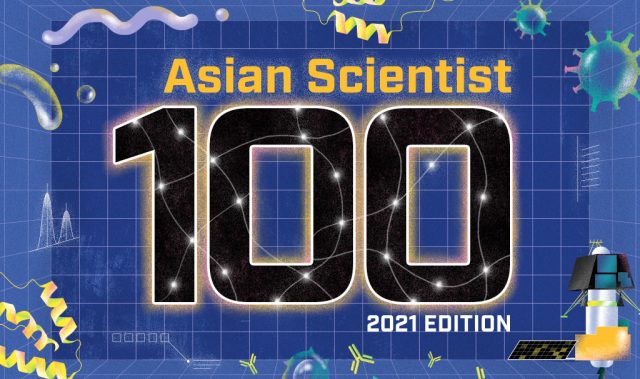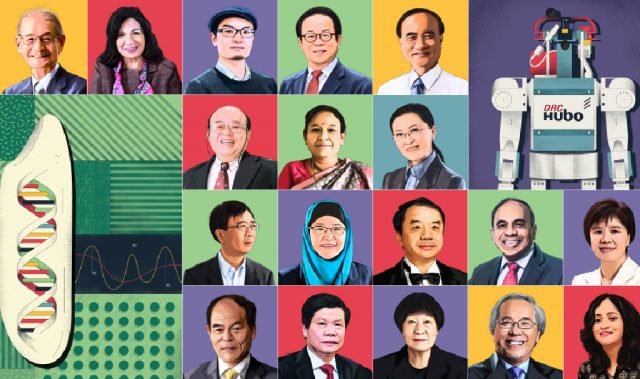
AsianScientist (Jun. 22, 2021) – When considering the rapid progress of science and technology over the past two decades in China, it is often consumer products that loom large in our imagination: Shenzhen-based DJI’s drones, for instance, buzzing across backyards and parks across the world.
Yet some of the country’s most fundamental breakthroughs are occurring far from the public eye; none more so than the revolutionary work in quantum physics being done by Pan Jianwei, known locally as ‘The Father of Quantum’ or ‘The Chinese Einstein.’
Pan, a professor at the University of Science and Technology China (USTC), has arguably done more than anybody else to nudge the world towards a quantum internet. This would comprise a network of satellites alongside terrestrial equipment that would enable quantum information to be shared globally.
A quantum internet would, among many other things, allow for theoretically unbreakable and unhackable global encryption “to make telecommunication more secure,” according to Pan.
Pan’s meteoric rise is a microcosm of China’s. He was born in 1970, almost a decade before the country’s market-oriented reforms began, into relative poverty. It was a time when “happiness was that coat of lard on the corn paste,” he once said.
He credits his parents’ open-mindedness for allowing him to follow his heart and pursue his scientific dreams. He was admitted to study modern physics at USTC and there, as a fan of Albert Einstein’s writings, developed an interest in quantum mechanics.
He later obtained his PhD degree from the University of Vienna in 1999, under the guidance of famed quantum physicist Anton Zeilinger, who quickly recognized Pan’s “gift for doing experiments.” In 2001, after his return to China, Pan won funding to establish a quantum physics laboratory at USTC.
In 2016, Pan led the launch of Micius, China’s first quantum satellite, named after Mozi, a first-century Chinese scientist and philosopher who, among other things, conducted many experiments with light. In 2017, Micius facilitated an unhackable video chat between Beijing and Vienna; between Pan’s team and one led by Zeilinger. The two had engaged in friendly rivalry over the years.
“They would compete fiercely to break records for transmitting entangled photon pairs across ever-wider gaps, and in ever-more extreme conditions, in ground-based experiments,” according to Scientific American.
Micius offered security by beaming encryption keys encoded in photons in a quantum state—a state that by definition would be disturbed by any attempt to observe or intercept it. It was further proof of Pan’s belief that space is an ideal territory for quantum communications because signal decay is markedly lower in a vacuum.
Pan also oversaw the construction of a 2,032 km terrestrial quantum key distribution (QKD) network between Beijing and Shanghai, currently the world’s longest, which businesses are already using to transmit information securely.
Pan is laying the groundwork for an ultra-secure quantum internet as well as computers powerful enough to surpass those in the US—efforts that will excite enthusiasts but worry those in the West fearful of ‘the technology threat’ from China. Quantum physics is seen as a key battleground in the battle for supremacy in the Fourth Industrial Revolution.
Thus Pan has also come to symbolize the frenemy nature of this era’s defining superpower contest. In 2018, Pan and his team won the Newcomb Cleveland Prize, one of America’s oldest science awards, for their research that lays the groundwork for ultrasecure communication networks of the future. They were the first mainland Chinese recipients in the Prize’s 95-year history.
However the US Embassy—perhaps influenced by broader national fears about intellectual property theft by Chinese scientists—did not process Pan’s visa in time, causing him to miss the ceremony.
Unlike DJI, Pan Jianwei may never become a household name across the world. Yet in far more fundamental ways he will very likely influence all our lives, from communications to geopolitics, as he quietly conducts his experiments.
———
Copyright: Asian Scientist Magazine; Photo: Lianne Chua.
Disclaimer: This article does not necessarily reflect the views of AsianScientist or its staff.












